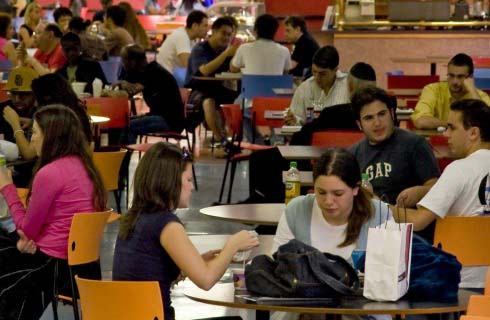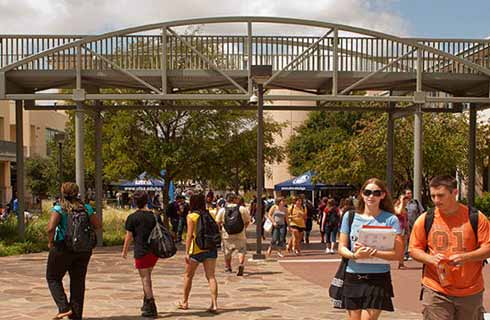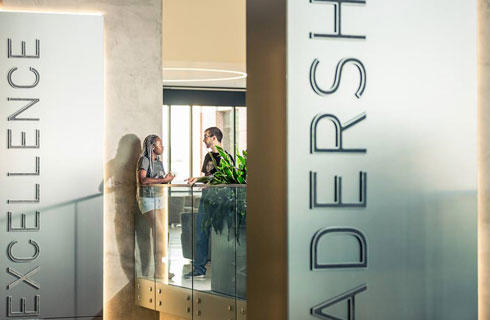MPhys(荣誉)物理学
MPhys (Hons) Physics

学历文凭
Undergraduate Masters

专业院系
Physics

开学时间

课程时长

课程学费

国际学生入学条件
IDP—雅思考试联合主办方

雅思考试总分
6.5
- 雅思总分:6.5
- 托福网考总分:80
- 托福笔试总分:
- 其他语言考试:Pearson Academic PTE - 62 (with no less than 59 in each Communicative Skill) Cambridge C2 Proficiency or C1 Advanced - 176 with a minimum of 169 per component
CRICOS代码: F301
申请截止日期: 请与IDP联系 以获取详细信息。
课程简介
A higher-level accredited qualification which includes real-world projects in research and industry, this course is ideal for those planning to move into research or a career in physics and related fields. This integrated Master’s degree is the first step towards Chartered Physicist status. It will suit those looking for an accredited course that leads to higher level education or a research role in physics, as well as providing a starting point for roles in science, finance, engineering and IT. Undergraduate physics degrees at Durham offer a high level of flexibility. We offer four Institute of Physics accredited courses – MPhys qualifications in Physics, Physics and Astronomy, and Theoretical Physics and the three-year BSc in Physics – which follow the same core curriculum in Year 1. Subject to the optional modules chosen, it is possible to switch to one of the other courses until the end of the second year. You can also apply for a one-year work placement or study abroad opportunity with one of our partner organisations, increasing the course from four years to five. The first year lays the foundation in physics theory, mathematical skills and laboratory skills that you will need to tackle more complex content later in the course. From Year 2 you'll have the opportunity to explore areas such as astrophysics, quantum theory or the relationship between physics and society in more detail. As you progress to Year 3 learning is more closely aligned to real-world issues through project work and optional modules that are tailored to your interests and aspirations. Your knowledge is further extended in Year 4 with a project based on a live research topic, and higher-level modules which take your study of physics to a greater depth.Course structureYear 1 modulesCore modules:Foundations of Physics introduces classical aspects of wave phenomena and electromagnetism, as well as basic concepts in Newtonian mechanics, quantum mechanics, special relativity and optical physics.Discovery Skills in Physics provides a practical introduction to laboratory skills development with particular emphasis on measurement uncertainty, data analysis and written and oral communication skills. It also includes an introduction to programming.Optional modules:In recent years, optional modules have included: Single MathematicsLinear AlgebraCalculus. Please note: it is compulsory to study two Maths modules (as background mathematical knowledge for the Foundations module).Year 2 modulesCore modules:Foundations of Physics A develops your knowledge of quantum mechanics and electromagnetism. You will learn to apply the principles of physics to predictable and unpredictable problems and produce a well-structured solution, with clear reasoning and appropriate presentation.Foundations of Physics B extends your knowledge of thermodynamics, condensed matter physics and optics.Mathematical Methods in Physics provides the necessary mathematical knowledge to successfully tackle the Foundations of Physics modules. It covers vectors, vector integral and vector differential calculus, multivariable calculus and orthogonal curvilinear coordinates, Fourier analysis, orthogonal functions, the use of matrices, and the mathematical tools for solving ordinary and partial differential equations in a variety of physical problems.Laboratory Skills and Electronics builds lab-based skills, such as experiment planning, data analysis, scientific communication and specific practical skills. It aims to teach electronics as a theoretical and a practical subject, to teach the techniques of computational physics and numerical methods and to provide experience of a research-led investigation in physics in preparation for post-university life.Optional modules:In recent years, optional modules have included: Stars and GalaxiesTheoretical PhysicsPhysics in Society.
相关申请
 预科
预科 奖学金
奖学金 实习机会
实习机会 在校学习
在校学习 跨境学习
跨境学习 校园授课-线上开始
校园授课-线上开始 在线/远程学习
在线/远程学习
开学时间&学费
学费信息仅供参考,请与IDP联系以获取详细信息
| 开学时间 | 时长 | 学费 | 地点 |
|---|
学校排名

世界排名114
数据源:
泰晤士高等教育世界大学排名
关于杜伦大学

杜伦大学创建于1832年,是英国历史最悠久的大学之一。杜伦大学建于中世纪世界遗产地旁,有着悠久的历史和现代价值观,是一座备受推崇并拥有前瞻性思维的学府。如今,来自世界各地的18000多名学生在达勒姆就读。杜伦大学有28个系,开设有200多门本科和研究生课程。该校很多教师都处于各自领域的最前沿。教职人员利用出色的研究和学科知识为所有学生提供优质的教学。目前,杜伦大学有17个学科在全球大学中名列前100位,其中九个学科名列前50位。除了在学术上的卓越成就,该校还努力为学生提供支持,帮助他们在毕业后获得有意义的工作。其毕业生就业能力目前在世界上排名第88位。该校的就业与创业中心致力于培养学生的专业技能,并提供商业人脉和工作机会。杜伦大学目前在2020年《QS世界大学排名》中名列第78位,稳稳跻身全球大学百强之列。该校为教职人员和学生创造了一个热情友好的多元化社交环境,并因此而倍感自豪。目前,杜伦大学28%的在校生为非英国本土学生。大学社区处在独一无二的达勒姆求学体验的核心位置,达勒姆的每个社区均是多元化、多学科的社区,由来自不同背景和文化的学者、学生和工作人员组成。有了这些社区,加上该校杰出的支持体系,学生们一定会有宾至如归之感,并可参与大量精彩的课题。
本校相关课程

博士神学与宗教
学历文凭
Ph.D.
开学日期
课程费用总额


MLitt神学与宗教
学历文凭
Masters Degree (Taught)
开学日期
课程费用总额


博士学位论文博士学位
学历文凭
Ph.D.
开学日期
课程费用总额


理学硕士心理学研究
学历文凭
Masters Degree (Research)
开学日期
课程费用总额


研究心理学硕士
学历文凭
Masters Degree (Research)
开学日期
课程费用总额


博士哲学
学历文凭
Ph.D.
开学日期
课程费用总额

其他相关课程

理学学士(物理学)荣誉
 伊迪斯科文大学
伊迪斯科文大学学历文凭
Bachelor Degree with Honours
开学日期
课程费用总额


理学学士(荣誉学位)-物理学
 伍伦贡大学
伍伦贡大学泰晤士高等教育世界大学排名:247
学历文凭
Bachelor Degree with Honours
开学日期
课程费用总额


哲学硕士(物理)
 科廷大学
科廷大学泰晤士高等教育世界大学排名:256
学历文凭
Masters Degree (Research)
开学日期
课程费用总额


哲学博士(物理)
 纽卡斯尔大学
纽卡斯尔大学学历文凭
Ph.D.
开学日期
课程费用总额


理学学士(高性能计算物理)(荣誉学位)
 阿德莱德大学
阿德莱德大学学历文凭
Bachelor Degree with Honours
开学日期
课程费用总额


理学学士(空间科学和天体物理学)
 阿德莱德大学
阿德莱德大学学历文凭
Bachelor Degree
开学日期
课程费用总额










 英国
英国